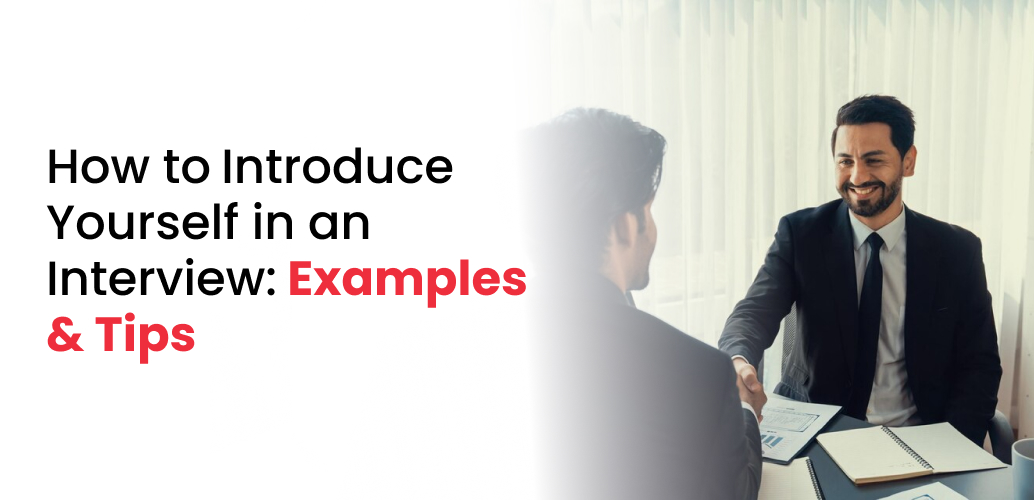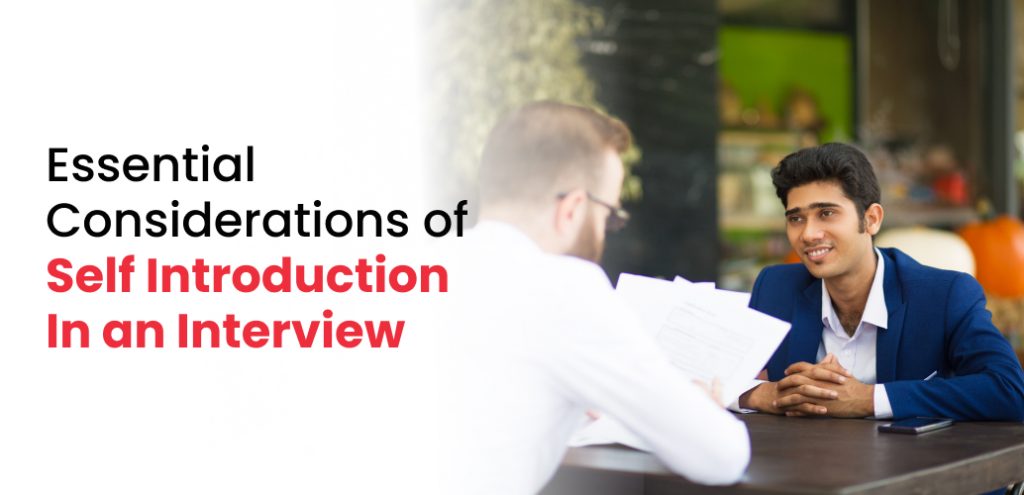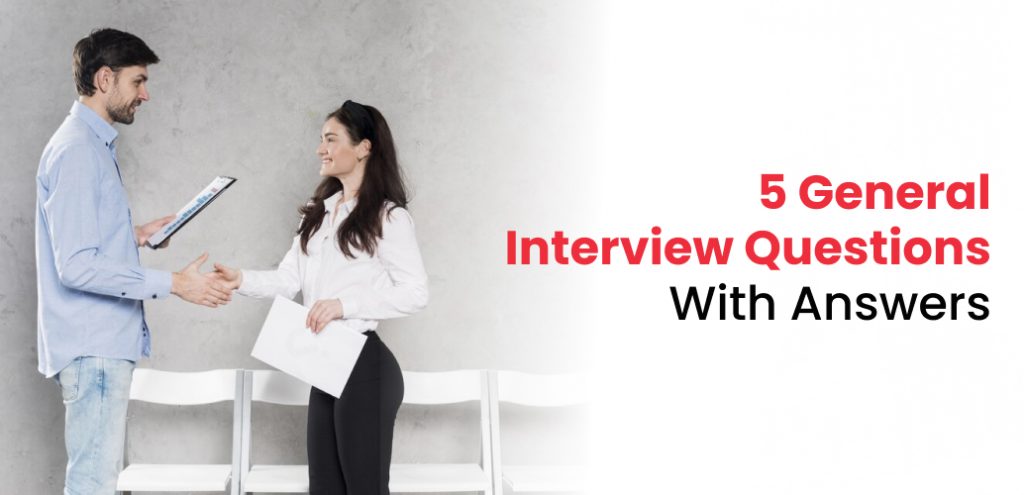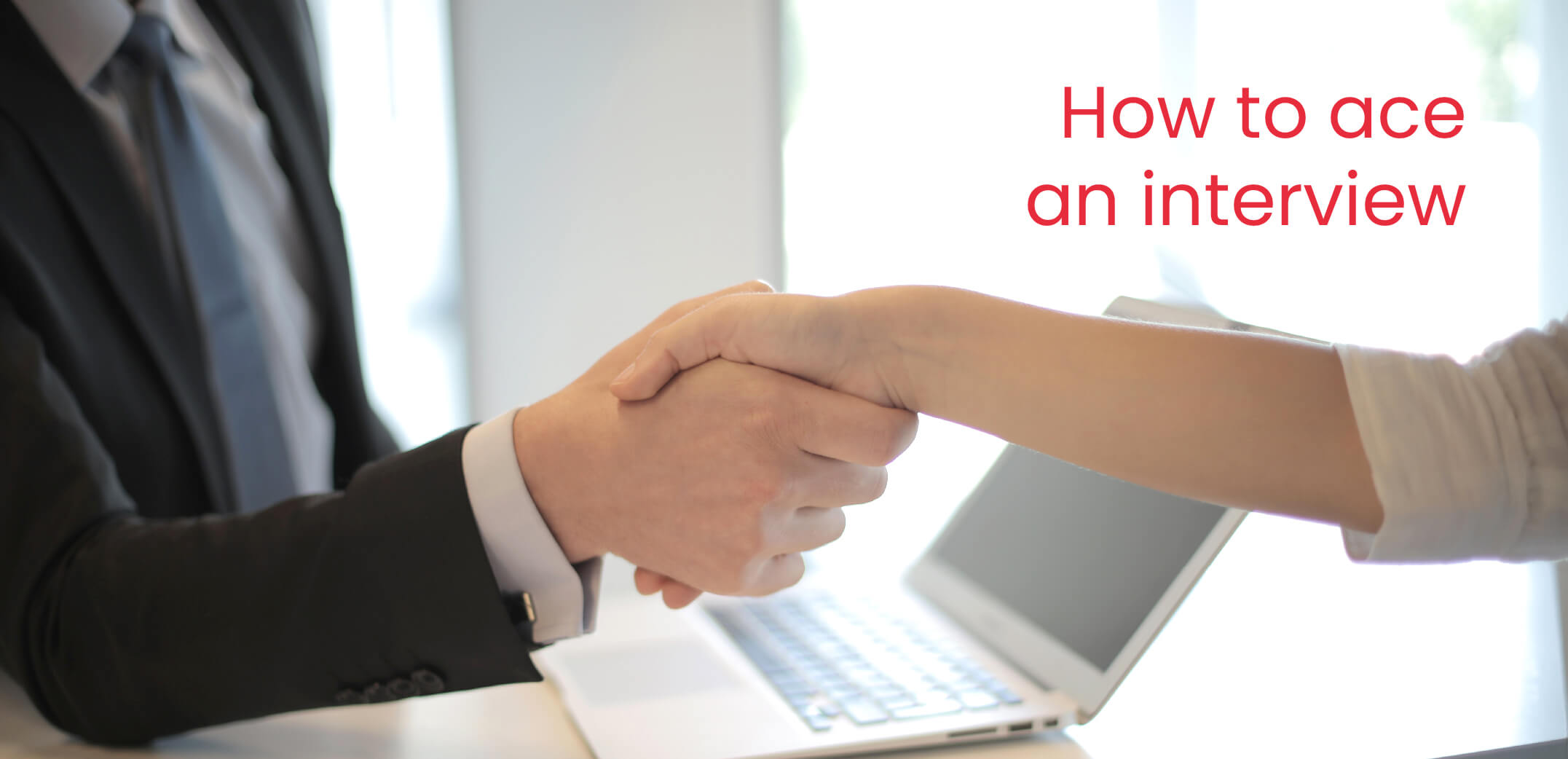Blog > How to Introduce Yourself in an Interview: Examples & Tips
How to Introduce Yourself in an Interview: Examples & Tips
December 1st, 2023

How to Introduce Yourself in an Interview: Examples & Tips
Significance of Strong Self Introduction In an Interview
Essential Considerations of Self Introduction In an Interview
Question 1. What are your areas of strength and weakness?
Question 2. How do you respond to circumstances where you are under pressure?
Question 3: What makes working for our company appealing to you?
Question 4: How do you resolve disputes at work?
Examples of Self Introduction in an Interview Crafting Lasting Impressions with Strong Self-Introductions in an Interview
FAQs
Strong preparation to introduce yourself in an interview significantly influences the interviewer's perception and sets the tone for the entire interaction. In this blog, you will learn the significance and essential factors to consider while preparing to introduce yourself in an interview.
An effective self-introduction indicates your confidence, preparation, and comprehension of the company's requirements. It establishes the tone for the entire interview, attracting attention and leaving a favourable impression.
Here are the necessary elements you must consider to effectively introduce yourself in an interview.
This approach establishes your competence and offers a well-rounded introduction, setting a positive tone for the interview.
Read More : Guide On Strengths and Weaknesses To Crack Your Job Interviews
By effortlessly integrating your expertise with the position requirements, you effectively introduce yourself in an interview and establish a strong foundation for a meaningful conversation.
Also Read : Effective Ways on How to Improve your Interview Skills and Get Placed
Be sure to customise your answers to the specific requirements of the position you are applying for and your experiences. Here are four vital interview questions, along with acceptable solutions.
Read More : 5 unconventional questions you may get asked in an interview – and how to answer them
Also Read : Things To Do Before and After the Interview Process
Elevate your professional journey with confidence and authenticity. Contact upGard Campus to embrace your skills and enhance your job prospects for a concise future.
YT Link : https://www.youtube.com/watch?v=U8ERR1V8Aug
Also Read : Stand out in Job Interviews with the STAR Method
Significance of Strong Self Introduction In an Interview
Essential Considerations of Self Introduction In an Interview
- Name and Past Events
- Professional Background
- Strengths and Skills
- Relevance to the Job
- Motivation and Enthusiasm
- Alignment With the Organisation’s Core Values
- Final Thoughts
- Excessive Detailing
- Lack of Enthusiasm or Confidence
- Not Addressing the Criteria of the Interviewer
- Hurrying Through the Introduction
- Complex Language
- Non-Verbal Cues
Question 1. What are your areas of strength and weakness?
Question 2. How do you respond to circumstances where you are under pressure?
Question 3: What makes working for our company appealing to you?
Question 4: How do you resolve disputes at work?
Examples of Self Introduction in an Interview Crafting Lasting Impressions with Strong Self-Introductions in an Interview
FAQs
- In an interview, how lengthy should my self-introduction be?
- Should my self-introduction contain any personal information?
- Is it necessary to modify my introduction for various interview styles?
- What does it mean to include the company values in my self-introduction?
Strong preparation to introduce yourself in an interview significantly influences the interviewer's perception and sets the tone for the entire interaction. In this blog, you will learn the significance and essential factors to consider while preparing to introduce yourself in an interview.
Significance of Strong Self Introduction In an Interview
A strong self introduction in an interview is essential to open various career opportunities. It acts like a vocal business card, leaving an impression on interviewers. It creates your identity, showcases your accomplishments, and aligns your skills.An effective self-introduction indicates your confidence, preparation, and comprehension of the company's requirements. It establishes the tone for the entire interview, attracting attention and leaving a favourable impression.
Essential Considerations of Self Introduction In an Interview

Here are the necessary elements you must consider to effectively introduce yourself in an interview.
1. Name and Past Events
When you introduce yourself in an interview, you must ensure clarity and confidence in your speech. Start by articulating your qualifications and effortlessly transition to a concise overview of your educational background.This approach establishes your competence and offers a well-rounded introduction, setting a positive tone for the interview.
2. Professional Background
Remember to include your professional experience, focusing on roles directly relevant to the position at hand. Additionally, illuminate accomplishments and responsibilities that vividly showcase your expertise and knowledge.3. Strengths and Skills
Clearly express your primary skills and strengths. This gives the interviewer a clear picture of what you will bring to the corporation and why you are a great candidate.Read More : Guide On Strengths and Weaknesses To Crack Your Job Interviews
4. Relevance to the Job
Connect your background and abilities to the job needs explicitly. Show how your unique qualifications make you an excellent fit for the position.5. Motivation and Enthusiasm
Introduce yourself in an interview by demonstrating genuine enthusiasm for the job and the organisation. Explain why you're applying and why you're enthusiastic about the opportunity.6. Alignment With the Organisation’s Core Values
Demonstrate your understanding of the company's principles and mission. Explain how your professional aspirations connect with the organisation's aims, stressing shared values.7. Final Thoughts
Finish your introduction with a confident and optimistic statement. This can explain why you believe you are the best fit for the position or a thank you for the opportunity to interview.6 Common Mistakes to Avoid in an Interview
When you introduce yourself in an interview, it is critical to avoid common mistakes that can ruin your positive first impression.1. Excessive Detailing
Avoid presenting excessive details that could overwhelm the interviewer. Keep your introduction brief and focused on the most critical details.2. Lack of Enthusiasm or Confidence
A flat or unenthusiastic tone can detract from the impact of your opening remarks. You must project confidence and excitement to communicate a positive and proactive attitude.3. Not Addressing the Criteria of the Interviewer
Your introduction should go beyond presenting your qualifications and address how your skills and experiences fit the criteria of the post.By effortlessly integrating your expertise with the position requirements, you effectively introduce yourself in an interview and establish a strong foundation for a meaningful conversation.
4. Hurrying Through the Introduction
Speaking too hastily in the introduction can make it challenging for the interviewer to take everything in. You must move slowly and steadily to ensure clarity and comprehension.5. Complex Language
Avoid employing complex language that could confuse someone inexperienced with your field. Make sure that your communications are clear and concise.6. Non-Verbal Cues
Pay attention to your body language and facial expressions. You should maintain eye contact, avoid fidgeting, and confidently convey an open demeanour.Also Read : Effective Ways on How to Improve your Interview Skills and Get Placed
5 General Interview Questions With Answers

Be sure to customise your answers to the specific requirements of the position you are applying for and your experiences. Here are four vital interview questions, along with acceptable solutions.
Question 1. What are your areas of strength and weakness?
Answer: I possess strong problem-solving skills, a key strength crucial for [relevant to the work]. I excel at [name another strength, like effective communication]. However, I'm always trying to improve at [name a skill you're working on, like time management]. I'm committed to honing my abilities and think self-improvement is possible.Question 2. How do you respond to circumstances where you are under pressure?
Answer: I performed well under stress and frequently met deadlines in my prior position at [Previous Company], so I learned to manage my time and set priorities effectively. I keep my composure and concentrate while dividing everything into manageable sets. This strategy ensures the delivery of high-quality work even in challenging, time-sensitive situations.Question 3: What makes working for our company appealing to you?
Answer: [Explain a positive quality, like innovation] is what attracts me to [Current Company]. Your dedication to [name a particular goal or ideal, like sustainability] is consistent with my work ethic. I am thrilled to offer my expertise to a business that shares my values, for example, collaboration at [name a company value].Question 4: How do you resolve disputes at work?
Answer: I approach confrontation, intending to find solutions. When disagreements emerge, I comprehend all points of view, pay attention, and then cooperate to find a solution. In a prior position, I resolved a dispute between teammates and promoted a happier, more productive work environment.Read More : 5 unconventional questions you may get asked in an interview – and how to answer them
Examples of Self Introduction in an Interview
Here are a few examples you can consider for self introduction in an interview.1. Candidate at Entry Level
Hello, I am [Your Name], a recent [Your Field] graduate. I am excited to offer my new perspective and dedication to [Current Company], contributing to [particular contribution], having developed my [Key Skill] during my internship at [Previous Company].2. Mid-Career Candidate
Hi, I'm [Your Name]. I have [X] years of expertise in [Your Industry] and led [Key Achievement] at [Previous Company] with success. Using my experience in [Your Field] to further innovation and expansion at [Current Company] inspires me a lot.3. Experienced Candidate
Good morning, I'm [Your Name], an experienced leader with a proven track record of [Industry] organisation transformation. At [Previous Company], my strategic leadership produced [notable outcome], and I'm excited to use my knowledge and experience to advance [Current Company's].Also Read : Things To Do Before and After the Interview Process
Crafting Lasting Impressions with Strong Self-Introductions in an Interview
To effectively introduce yourself in an interview, you must require strategic planning and implementation. An introduction conveys credentials and shows you are excited about the opportunity to work for the organisation. Mastering the art of self introduction in an interview ensures a solid foundation for a positive and memorable interview experience, laying the framework for future career success.Elevate your professional journey with confidence and authenticity. Contact upGard Campus to embrace your skills and enhance your job prospects for a concise future.
YT Link : https://www.youtube.com/watch?v=U8ERR1V8Aug
FAQs
1. In an interview, how lengthy should my self-introduction be?
The ideal length for a self introduction in an interview is approximately 1-2 minutes. Aim to convey essential information about your graduations, experiences and enthusiasm concisely.2. Should my self-introduction contain any personal information?
A personal touch can make your introduction more authentic but keep most of your attention on business-related facts. Relate personal tales to the work and culture of the organisation.3. Is it necessary to modify my introduction for various interview styles?
It does demonstrate versatility to adjust your introduction to several formats (virtual, panel, one-on-one). Content must be customised to meet each environment's unique dynamics and standards.4. What does it mean to include the company values in my self-introduction?
Answering the firm's ideals shows that you share the company's culture. It indicates that you have thoroughly researched the company and want to add its culture.Also Read : Stand out in Job Interviews with the STAR Method






Add a Comment